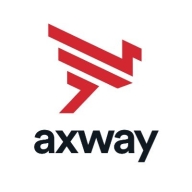

Microsoft Azure API Management and Axway AMPLIFY API Management compete in the API management category. Microsoft Azure stands out for its integration and developer support, while Axway excels in security and performance.
Features: Microsoft Azure API Management is known for its seamless integration with the Microsoft ecosystem, robust security features, and comprehensive support for developers, aiding in API lifecycle management. Axway AMPLIFY API Management is praised for its strong security capabilities, efficient data handling, and superior API governance, providing valuable multi-system integration.
Room for Improvement: Microsoft Azure API Management needs enhancement in multi-tenant capabilities, more flexible integration options, and a simplified pricing structure. Users voice concerns about documentation quality. Axway AMPLIFY API Management could improve global scalability, technical support, and the developer portal to ease the management of on-premises APIs.
Ease of Deployment and Customer Service: Microsoft Azure API Management supports deployment across hybrid, public, and on-premises environments but has noted issues with support responsiveness. Axway AMPLIFY API Management offers strong deployment options across private and hybrid clouds with an effective customer support system that promptly addresses user queries.
Pricing and ROI: Microsoft Azure API Management has reasonable base pricing, though costs may rise with premium features, potentially affecting medium-sized organizations. Axway AMPLIFY API Management, perceived as expensive, provides full feature access within its pricing, offering a cost-effective alternative. Both platforms deliver notable ROI through reduced integration times and enhanced efficiency.
| Product | Market Share (%) |
|---|---|
| Microsoft Azure API Management | 16.5% |
| Axway AMPLIFY API Management | 1.6% |
| Other | 81.9% |


| Company Size | Count |
|---|---|
| Small Business | 4 |
| Midsize Enterprise | 1 |
| Large Enterprise | 7 |
| Company Size | Count |
|---|---|
| Small Business | 23 |
| Midsize Enterprise | 11 |
| Large Enterprise | 53 |
Axway API Management Plus combines API lifecycle management, secure integration services, monitoring and analytics to help you innovate faster and heighten ecosystem engagement. It is part of the Axway AMPLIFY data integration and engagement platform, which also includes unified app development for mobile to provide a complete solution for rapid change and innovation.
Microsoft Azure API Management is essential for managing APIs, facilitating integration, and ensuring secure internal and external communication.
Organizations leverage Microsoft Azure API Management for seamless integration and effective API management. It supports microservices, legacy modernization, and platform orchestration in sectors like healthcare, telecom, and finance. Features such as developer portals and centralized libraries simplify usage. While it showcases strengths in hybrid cloud support and scalability, improvements are suggested in versioning and multi-tenancy.
What key features does it offer?Microsoft Azure API Management aids modernization across healthcare, telecom, and financial services by enabling legacy system updates and facilitating smooth platform orchestration.
We monitor all API Management reviews to prevent fraudulent reviews and keep review quality high. We do not post reviews by company employees or direct competitors. We validate each review for authenticity via cross-reference with LinkedIn, and personal follow-up with the reviewer when necessary.